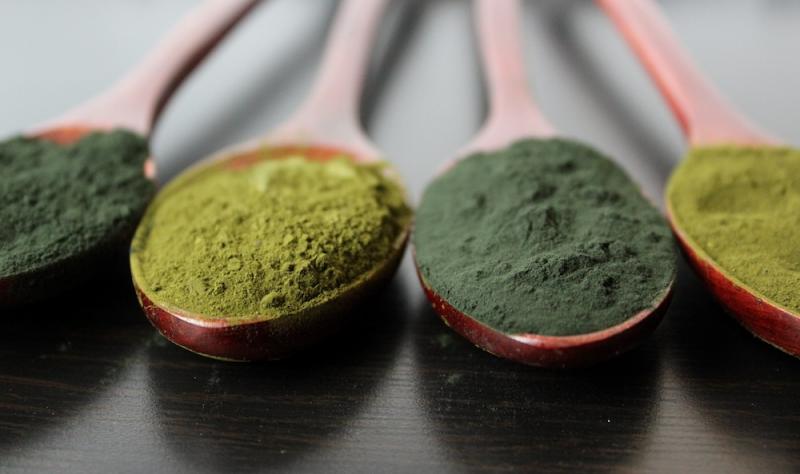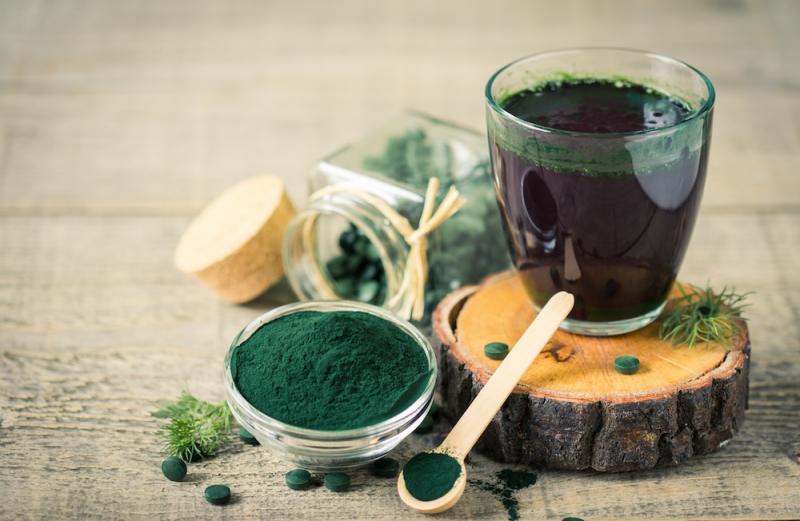
Freshwater algae have been used as food and medicine for thousands of years. For example, the Aztecs gathered algae from the great lakes of Central Mexico, dried it, and made cakes from it. The Kanembu, a tribe in Africa, used algae from Lake Johann in soup and bread.
Because algae is easy to grow and is one of the highest plant sources of protein, science fiction writers have sometimes depicted a futuristic world in which algae is the major food source. And, like seaweeds, freshwater algae have a high vitamin and mineral content, giving them both nutritional and medicinal value.
Algae is a great plant source of amino acids, which can also be helpful for the formation of neurotransmitters in the brain. Taking the algae can help to stabilize mood and improve concentration. It also helps with energy.
Another use for algae is to balance the immune system. It can boost the immune system to help the body fight off infections, but it can also be used to reduce allergic reactions. Algae can also aid the detoxification of heavy metals, radiation, and toxins.
Some common types of freshwater algae include spirulina, chlorella and blue-green algae. Here is some information on each of these types of algae.
Spirulina
 Spirulina is a popular type of algae that is a rich source of protein, chlorophyll, carotenoids, minerals, and gamma-linolenic acid (GLA). It also contains some unique pigments that provide the bluish tint to this blue-green algae. Research suggests spirulina may have the ability to inhibit viral infections such as flu, measles, mumps, cytomegalovirus, and herpes simplex type 1. It also appears to boost immune activity and inhibit allergic reactions.
Spirulina is a popular type of algae that is a rich source of protein, chlorophyll, carotenoids, minerals, and gamma-linolenic acid (GLA). It also contains some unique pigments that provide the bluish tint to this blue-green algae. Research suggests spirulina may have the ability to inhibit viral infections such as flu, measles, mumps, cytomegalovirus, and herpes simplex type 1. It also appears to boost immune activity and inhibit allergic reactions.
In practical use, many people feel spirulina boosts energy, reduces sugar cravings, and aids weight loss. It is antioxidant and hepatoprotective and may also help to lower cholesterol.
Chlorella
Chlorella is a freshwater green algae noted for its chlorophyll content and as a rich source of vitamins A, B2, B3, iron, magnesium, and zinc. Research suggests it helps to detoxify heavy metals, radiation, and chemotherapy agents. It boosts your immune system and may help to lower blood sugar and cholesterol.
Blue-Green Algae
Blue-green algae is freshwater algae harvested from the beautiful waters of Klamath Lake in Oregon. It contains chlorophyll, protein and amino acids, neuropeptides, fatty acids, B vitamins, and beta-carotene. There is some research suggesting it may help reduce allergic reactions, boost immune activity, balance brain function in ADHD, normalize blood sugar levels, and reduce levels of heavy metals like arsenic.
Using Algae
 I’ve used a formula containing these species of algae for several therapeutic reasons. It can help to stabilize blood sugar and reduce sugar cravings. Take two capsules at breakfast and two more at lunch. If you experience a mid-afternoon slump, take two more capsules around three or four in the afternoon. It also helps to take 1-2 capsules of licorice root with each dose of the algae blend. If you have high blood pressure you can substitute one capsule of bee pollen for the licorice root.
I’ve used a formula containing these species of algae for several therapeutic reasons. It can help to stabilize blood sugar and reduce sugar cravings. Take two capsules at breakfast and two more at lunch. If you experience a mid-afternoon slump, take two more capsules around three or four in the afternoon. It also helps to take 1-2 capsules of licorice root with each dose of the algae blend. If you have high blood pressure you can substitute one capsule of bee pollen for the licorice root.
You can take algae in capsules, but you can also mix it into smoothies or add the powder to other foods. An effective dose is about two to three grams which is about four to six capsules.
Steven's Articles
-

-
Eucommia Bark
A superior tonic that promotes kidney, structural,…
January
-

-
Goldenthread, Phellodendron, and Yellow Root
Three herbal remedies containing the infection-fighting…
-

-
Teasel
A traditional herb for healing bones and joints…
-

-
Barberry and Healthy Personal Boundaries
A thorny shrub for fighting infections and supporting…
December
-

-
The Evidence for Berberine
A yellow alkaloid found in traditional infection-fighting…
-

-
The Sensible Use of Caffeinated Herbs
Kola nuts, guarana, and yerba mate and other herbs…
-

-
The Health Benefits and Problems with Coffee
This popular caffeinated beverage can be beneficial…
October
-

-
Understanding Caffeine & Cellular Adaptation
Preserving the power of caffeine's buzz and the…
September
-

-
Horseradish
A pungent spice for aiding protein metabolism…
-

-
Banaba or Crepe Myrtle
A beautiful tree from Southeast Asia whose leaves…
August
-

-
Monkeyflowers
Flower essences to help see ourselves more clearly…
-

-
Mariposa Lilies
Strengthening the bond between mother and child…
-

-
The Noble Bay Leaf
A common kitchen herb for aiding digestion and…
-

-
Epimedium: Horny Goat Weed
A circulatory stimulant and kidney yang tonic…
July
-

-
The Medicinal and Nutritional Benefits of Apricots
A nutritious fruit and valuable medicinal seed for coughs

